
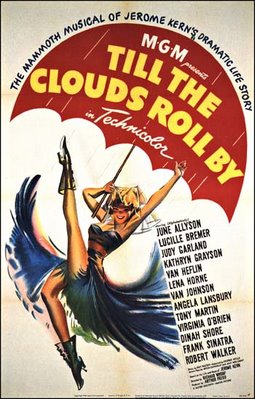
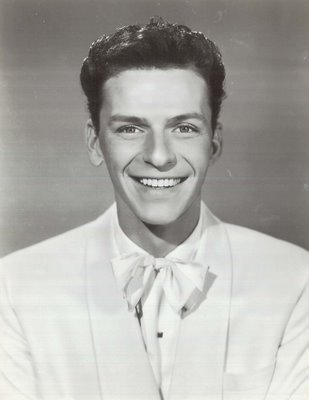 Till The Copyright Renewal Notice Rolls By
Till The Copyright Renewal Notice Rolls ByThere used to be a nice lady who worked in the MGM legal department. Mildred Basch’s job was keeping up with the tickle list. It told you when to renew copyright registrations. A certificate was issued for every motion picture, good for twenty-eight years only, and failure to apply for a new certificate at the end of that period consigned your property to the public domain. After that, it was fair game. Anyone could buy, sell, or lease that movie. The tickle list was Metro’s record of what needed to be renewed from year to year. In 1974, Till The Clouds Roll By came up on its twenty-eighth birthday --- and MGM missed the deadline. It was not on the tickle list. My good friend Dr. Karl Thiede remembers his conversation with Ms. Basch. So how did such a big one slip by? The nice lady shrugged. Someone just forgot. For all the titles they had to keep up with, was it so unusual to have overlooked a few? Till The Clouds Roll By was most notable of these, but there was also Love Laughs At Andy Hardy, Royal Wedding, Vengeance Valley, Cause For Alarm, and The Last Time I Saw Paris to demonstrate that record keepers are, after all, only human (these titles are now PD). I recall being stunned at the announcement of Till The Clouds Roll By on Super 8 magnetic sound with color. Yes, we could purchase a brand-new print and show it anytime in our own homes! Footage from the 1946 musical would turn up time and again in compilations and documentaries. Video merchants offered Till The Clouds Roll By on dozens of labels. Never mind the miserable quality. Bargain baskets have them marked down to a dollar at your local super market. Until Warners finally offered a superb DVD from original elements, we’d forgotten how beautiful this movie could look.
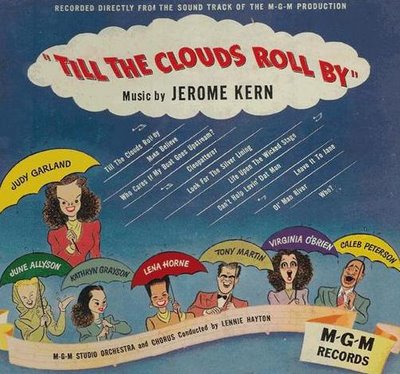
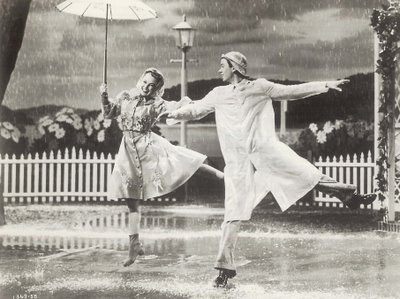
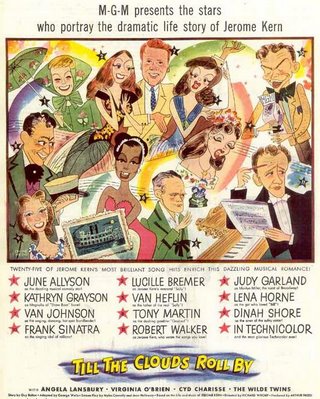
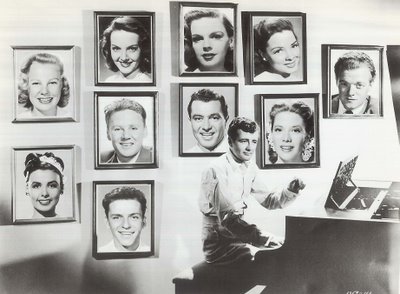
Till The Clouds Roll By reminded me of those animated Harman/Ising candy-boxes I gorged myself on last week. Never have I entered live-action portals so resolutely unreal as these. Old-time Metro personnel in the seventies must have been thinking of this one as they took melancholy strolls through soon-to-be-dismantled backlots in That’s Entertainment and Hollywood --- The Dream Factory. This roving time capsule gives you a real sense of what it was like to live and work at MGM during the mid-forties, as it covers all the real estate and most of its personalities. Surviving cast members marvel at having experienced both that vanished era and our own. We needn’t laugh at its artificiality, for in the end, what’s the difference between Cloud's process screen fakery and the CGI effects we have today? Dinah Shore's not fooling anyone when singing in front of a mock-up Eiffel Tower, and audiences were surely in on the joke when Frank Sinatra crooned while poised atop a nosebleed-inducing ivory column (and that droopy tie makes him look like his own caricature in the WB cartoon, Swooner Crooner). Point-of-view placement with theatre audiences distanced me a little from the big musical numbers. Vincente Minnelli’s set-pieces with Judy Garland are the only ones that attempt to bring you into the action. Otherwise, we’re sharing seats with onlookers culled from extra ranks. For an opening pocket version of Showboat (running eighteen minutes), the device works pretty well, since it gives you an approximation of what folks experienced when the show played on Broadway. Otherwise, the stage routines look --- well, stagy. As to merit, they run hot and cold. There’s a rain-and-umbrella number with June Allyson wearing a frozen smile that evokes Conrad Veidt in The Man Who Laughs. I was concerned she might never frown again, but this being June Allyson, she'd probably never want to. One of the Judy extravaganzas featured elephants. They seemed excessively clean and unnaturally poised in a way that made me wonder if they were real. Had Metro achieved a level of production expertise that now permitted them to manufacture automated pachyderms? I regarded the animals with increasing suspicion as they executed their roles with all too perfect grace. The same disquieting reaction enveloped me as Robert Walker (playing composer Jerome Kern) sat beneath a tree with sweetheart Dorothy Patrick while sheep grazed in back of them. Again, these were animals disturbingly composed, as if somehow understanding and responding to Richard Whorf’s direction. Their discreet and unobtrusive presence suggested an awareness that Walker and Patrick were not to be upstaged, and like any obedient Metro contractee, they adopted team player attitudes and maintained a respectful, though picturesque, distance. Again, I wondered if these were actual sheep, or robotic ones.
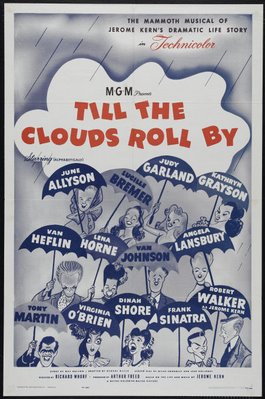
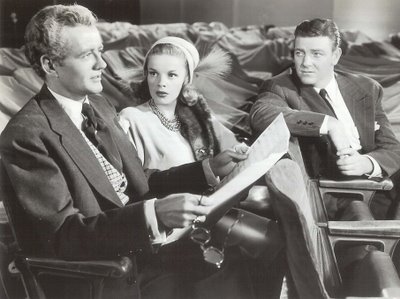
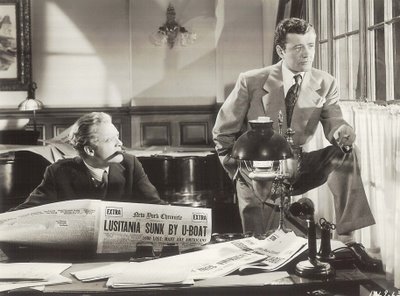
Robert Walker essays the part of Jerome Kern in Till The Clouds Roll By, but he’s living in a different movie from the rest of them. Bob’s first close-up tells the story. As the crowd applauds the opening of Showboat, he registers a sort of grim resignation and slowly makes his way through the crowd to a welcome (solitary) exit. Was this so different from Bob’s timid withdrawal after a typical MGM premiere? I re-imagined that scene in terms of Walker’s Get Me Out Of Here expression he wore at screenings of What Next, Private Hargrove, or The Sailor Takes A Wife --- any one of those lamentable vehicles they stuck him in after his beloved Phyliss decamped with Selznick. Bob lends real gravitas to this musical, even if it wasn’t the sort Metro intended. He’s mopey, disconnected, and magnificent, sailing along his own river Styx between the boyish naivete of Since You Went Away and the dissolution of Strangers On A Train. There are glimpses of Bruno here, a welcome discordant note in an otherwise efficient recital. You can’t take your eyes off Walker, because there’s always that faint suggestion he’ll walk off the set any minute and not come back. This, by the way, was around the time he disappeared for five or six days --- just split for parts unknown with no explanation. When he finally showed up again for work, Mayer wanted to apply woodshed discipline. Why don’t you just suspend me?, Bob asked. Well, what could be more disarming than that? The guy was bummed to the point of not caring less. Just for kicks, he’d call up the boss and invite him over for the weekend; I’ve only got a small bedroom for you in the back of the house, Louie, but whaddya like to eat? Anything for a little fun at management’s expense. They could fire him altogether and that’d be OK too. One of the great, unsung actors to trod the Metro board during the forties. Generous with his torments. Let us all in on them by way of many great performances. And don’t discount those lame, post- Menninger Clinic comedies (Please Believe Me, The Skipper Surprised His Wife). They’re priceless records of the Walker struggle, a man being passed through the final mechanisms of the studio meat-grinder before the penultimate triumph of Strangers On A Train. By the way, where is his final film, My Son John? A copyright search indicates Paramount still owns it. The last showing I recall was on ABC over thirty-five years ago. They say Bob surpasses himself in it. Are there any decent bootlegs around?